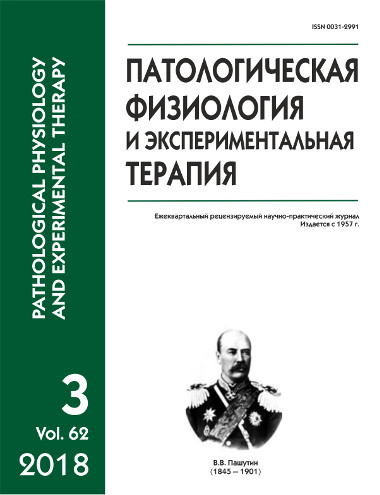Новые возможности доставки лекарственных препаратов в онкологии
DOI:
https://doi.org/10.25557/0031-2991.2018.03.120-127Ключевые слова:
лучевой эпителиит, сопроводительная терапия, лучевая терапияАннотация
Цель исследования. Разработка методов сопроводительной терапии для защиты нормальных органов и тканей, входящих в зону облучения. Методы. В исследование включено 112 больных раком шейки и тела матки после комбинированного или самостоятельного лучевого лечения с 2012 по 2016 гг. У 71 пациентки основной группы в качестве терапии сопровождения применяли гидрогель с деринатом и у 41 больной группы контроля — традиционные методы профилактики (масло оливковое, подсолнечное, метилурациловая мазь). Для профилактики эпителиита слизистой влагалища и шейки матки в основной группе использовали гидрогель в виде аппликаций с первого дня облучения. Для профилактики лучевого ректита гидрогель вводили в прямую кишку 1 раз в день с первого дня облучения. Инстилляции гидрогеля в мочевой пузырь начинали только при развитии первых признаков клинической картины цистита. Пациенткам контрольной группы для профилактики лучевых реакций проводились масляные, мазевые аппликации во влагалище, масляные микроклизмы в прямую кишку с первого дня облучения. Лечение лучевого цистита проводили с помощью растительных диуретиков, уросептиков. Результаты. Применение гидрогеля с деринатом позволило провести курс лучевой терапии без перерыва у 84,5% (60/71) больных, в контрольной группе — лишь у 48,8% (20/41). Лучевые циститы возникали в 2,5 раза реже (25,3% ± 3,3 против 63,4% ± 2,7, р<0,01). Анализ степени выраженности лучевого цистита по RTOG в двух группах показал, что у 75% больных основной группы наблюдалась I степень, у 25% — II степень, III и IV степени не отмечено, тогда как в контрольной группе лучевой цистит I степени развился у 44% пациенток, II — 40% и III — 16% больных. Применение гидрогеля снизило частоту лучевых ректитов в 2 раза (26,7% ± 3,3 против 53,7% ± 3,2 р<0,1).При использовании ежедневных аппликаций гидрогеля с деринатом со стороны слизистой оболочки влагалища и шейки матки преобладали эпителииты I степени (53,5%), II степень наблюдалась у 29,5% и III степень лучевой реакции — лишь в 16,9% случаев, IV степень реакции не отмечена. В контрольной группе эти показатели составили 26,8%, 24,3%, 31,7% и 17,2% соответственно. Разработаны цитологические критерии оценки течения лучевых реакций слизистой влагалища. Выделены три степени изменения цитограммы, которые коррелировали с клинической картиной. В основной группе лучевые изменения I степени зафиксированы в 4,5 раза чаще (52 ± 9,9% против 11,5 ± 6,3%, р<0,002), а III степень представлена в 3,8 раза реже, чем в контрольной группе (12 ± 6,5% против 46,1 ± 9,8%, р<0,003). Заключение. Применение гидрогелевого материала с деринатом в качестве препарата сопроводительной терапии во время курса облучения позволяет уменьшить частоту и степень выраженности лучевых повреждений со стороны слизистой влагалища, мочевого пузыря и прямой кишки, провести курс лучевой терапии без перерыва и улучшить качество жизни пациенток.Загрузки
Опубликован
2018-12-18
Выпуск
Раздел
Методика
Как цитировать
[1]
2018. Новые возможности доставки лекарственных препаратов в онкологии. Патологическая физиология и экспериментальная терапия. 62, 3 (Dec. 2018), 120–127. DOI:https://doi.org/10.25557/0031-2991.2018.03.120-127.













